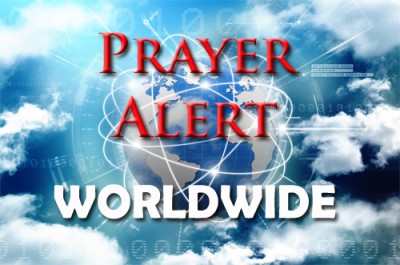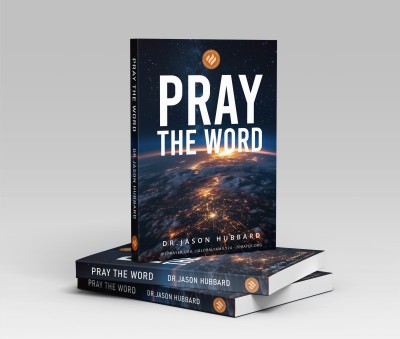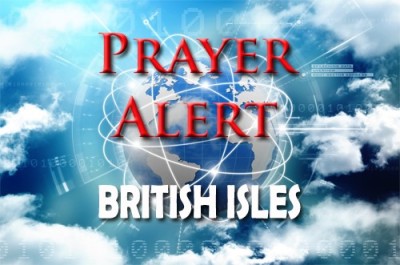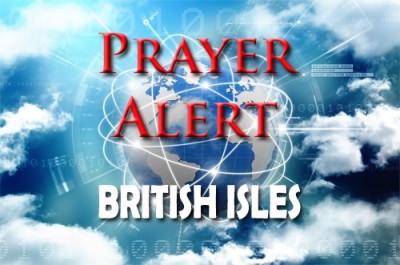Australia: apology to thalidomide victims
30 Nov 2023Prime minister Anthony Albanese has issued a national apology to survivors of the thalidomide scandal and their families, marking the government's first acknowledgment of its role in the tragedy. Thalidomide, initially a sedative but widely used as a morning sickness drug in the 1950s, led to severe birth defects in at least 10,000 babies globally. A report in 2019 revealed that 20% of cases could have been prevented with earlier action. Survivors have long sought acknowledgment and compensation, pointing to the examples set by Canada (in 1991) and the UK (in 2010). 140 survivors have registered for a financial support programme which gives a one-off payment of £260,000 each, with subsequent annual payments of between £2,600 and £30,000. Mr Albanese has now reopened the application process for those who might have missed it previously.
Ecuador: new president sworn in
30 Nov 2023In October we prayed for the presidential election in Ecuador. Now millionaire Daniel Noboa has been sworn in as president, marking a significant shift in the country's political landscape. A businessman with no prior political experience, he surprisingly won the snap election which former president Guillermo Lasso called to avoid possible impeachment. He will serve only 18 months, the remainder of Lasso’s term. Once considered one of the safest countries in the region, Ecuador has seen violence explode in recent years; there was an unprecedented increase in bloodshed, and drug violence has led to some 3,600 murders so far this year. Noboa has said he will target the violence by tackling unemployment, but also implement a state of emergency, suspend some citizen rights such as freedom of movement, and deploy the military to the streets. There is a considerable sense of uncertainty and anticipation surrounding his presidency.
Pray the Word
26 Nov 2023Introducing - Praying God’s Word
Years ago, I was taught how to pray the Word of God - and it has revolutionized my prayer life. It is the ultimate prayer manual written by God Himself. Scripture is the language of God’s heart! The Bible always makes His will clear to us through the written Word. Anything the Holy Spirit makes known to us will always agree with God’s revealed Word.
DOWNLOAD PRAY the WORD (PDF)
As 2 Timothy 3:16-17 writes, God has always been looking for those to whom he can speak, those who will hear and live. The Word of God isn’t casual, and it isn’t an option; our very lives depend on it! As Jesus declared in the wilderness, “Man does not live by bread alone but by every word that proceeds out of his mouth” (Matthew 4:4).
One of the ways that we learn to listen and talk to God is through Praying His Word!
It is about the rediscovery of hearing, delighting in, trembling before, and obeying the Word of God. The Word is meant to abide in us and transform us from the inside out! God’s Word feeds us (Matt. 4:4), washes us (Eph. 5:26-27), sanctifies us (John 17:17), disciplines us (Heb.4:12-13), imparts faith to us (Rom. 10:17), and equips us (2 Tim. 3:16-17).
May we get into the Word until the Word gets into us, both the written Word and the Living Word, the Lord Jesus!
At its core, prayer is the conversational part of the most essential love relationship in our lives! Prayer is intimacy with God, knowing God, and being known by God that leads to the fulfilment of his purposes. His power accomplishes it, which is all for His Glory and our Joy!
One of the practical ways that God invites us to ‘keep company with him’ is through praying Scripture. Hebrews 4:12 states that the Word of God is alive and powerful, or living and active! Along with reading God’s Word and studying God’s Word, we want to meditate on God’s Word – as Psalm 1 says,
“But his delight is in the law of the Lord, and on his law he meditates day and night. He is like a tree planted by streams of water, which yields its fruit in season and whose leaf does not wither. Whatever he does prospers” (Psalm 1:2-3).
Meditation on God’s Word and His Ways, or simply put, Praying God’s Word, is how the Spirit of God writes the Word of God on the hearts of the people of God. Something about meditation allows God’s truth to trickle from our heads to our hearts and through our hearts to our lives!
This booklet is simply a tool to help you spend time with God in his Word! I encourage you to pray the Scriptures out loud, turning truth into personal dialogue with the Lord. My hope is that you will experience more and more of his life, his love, and his power!
For the Supremacy of Christ in all things,
Dr. Jason Hubbard - Director
International Prayer Connect
Ocean giants return to 'safe' tropical haven
24 Nov 2023Blue whales, Earth's largest creatures, have returned to a part of the Indian Ocean where they were once decimated by whaling. Researchers in the Seychelles captured footage of these magnificent creatures in 2020 and 2021. Recent underwater audio recordings of their hauntingly beautiful low-frequency songs throughout the year have revealed their prolonged presence, suggesting potential breeding activities. This rediscovery is hailed as a ‘conservation win’ after decades of commercial whaling, which severely reduced blue whale populations. The end of mass-scale hunting has allowed them to rebound; however, their numbers remain small, and they are still classified as endangered. The Seychelles' role as a habitat for blue whales is a cause for excitement and underscores the importance of conservation efforts.
Prayer can change a life: Ready, Set, Go!
24 Nov 2023READY: Your prayer has power! James 5:16 One simple prayer for someone in need can impact their eternity. SET: One encounter changes a life: 'Today, I asked the gas station cashier how her day was going so far. She responded with OK. I asked if I could pray for her. She looked a bit shocked but quickly responded, sincerely, “Yes, you can”. With tears in her eyes, she asked for prayer for her anxiety. After I prayed, she grabbed both my hands and thanked me. I asked her if she knew if she was going to heaven. She said: “Yes!” I asked how she knew and she responded, “I want to go there because my dad and Grandpa are there”. I explained how we can know if we are going to heaven, and I explained the Gospel to her. I asked, “Now that you know, is there any reason that you wouldn't want to ask Jesus for his free gift of salvation?” We prayed together, and she accepted Christ as her Saviour today.' GO: Pray for the opportunity to pray for someone today!
On 21 November David Pytches, co-founder of New Wine, died after a sustained period of illness. David and his wife Mary started New Wine in 1989, seeking to help churches experience renewal in the power of the Spirit. Their ministry has touched many lives over the years. John and Anne Coles, who led New Wine for many years after David and Mary, have said: 'David entitled his memoirs “Living on the Edge”, and we thank God for the way in which he lived like that and showed us and countless others how to do so also. He humbly, lovingly, and courageously pioneered aspects of church life and mission in the power of the Spirit, which not only changed his own church and parish but also became models for hundreds of church leaders and churches around the world. This included his pioneering of New Wine as both a summer gathering inspiring thousands of church members and a network of church leaders for mutual encouragement in ministry. His love for Jesus and the Bible, his commitment to personal holiness, his persistence in prayer, his personal prophecies, and his willingness to give away everything with which God blessed him were an inspiration to us personally, and we will miss his role in our lives as a true “Father in God”.’ Read the full article in the link below.
In his Autumn Statement on 22 November, Chancellor Jeremy Hunt announced a significant cut in National Insurance from January, from 12% to 10%. However, due to previous tax changes, many workers might not see substantial benefits. He also raised the state pension by 8.5% and universal credit by 6.7%. Hunt claimed the Government had stabilised the economy, allowing for tax cuts aimed at boosting growth ahead of the next year's general election. Labour criticised the NI cut as insufficient compared to previous tax increases by the Conservative government. Hunt also made a tax break for business investments in new equipment permanent, touted as the 'biggest business tax cut in modern history.' Despite these cuts, the overall tax burden is set to reach a 70-year high. The Office for Budget Responsibility (OBR) revised growth forecasts downwards and projected a delay in the return to pre-pandemic living standards until 2027/28, citing prolonged inflation and higher interest rates. The NI reduction, seen as a significant move, led to speculation about an early general election.
On 22 November Jeremy Hunt unveiled a new Back to Work Plan, focusing on helping disabled individuals, those with long-term health conditions, and the long-term unemployed. The plan enhances four different support programmes, and also the WorkWell service, introduced in the 2023 Spring Budget, aims to assist nearly 60,000 long-term sick or disabled people. However, the plan includes stricter DWP sanctions for those able to work but not engaging with Jobcentre services or refusing work. Failure to engage could lead to the closure of their benefit claims. While the Chancellor highlights a balance of support and consequences, Disability Rights UK (DR UK) criticises the approach, arguing that employment barriers for disabled individuals lie in societal issues and lack of employer support. It stresses the absence of evidence supporting the effectiveness of sanctions and emphasises the need for support and adjustments for the employable while protecting those who cannot work from sanctions. DR UK advocates for investment in the benefits system, fairer structures, and prioritising the wellbeing of disabled and long-term sick individuals.






